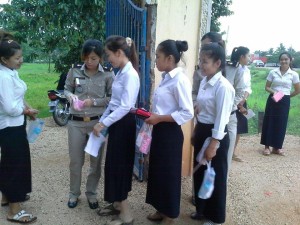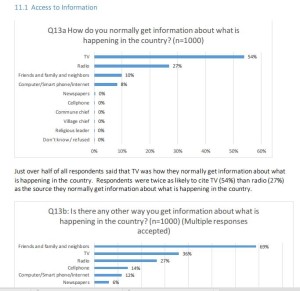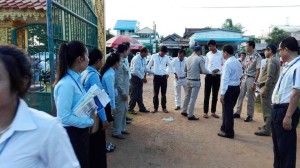Cambodia Political Leadership
now browsing by tag
Political Paradigm of Pragmatism from the Khmer Youth part 40
 This part (40), Mr. Sophan Seng continued to analyse the Education Reform in Cambodia through the measure of strict exam for High School students. According to the increase in state budget for Education Sector, it is a good move, but it has remained insufficient to ensure that modernization and standardization of this important part of long term development for Cambodia.
This part (40), Mr. Sophan Seng continued to analyse the Education Reform in Cambodia through the measure of strict exam for High School students. According to the increase in state budget for Education Sector, it is a good move, but it has remained insufficient to ensure that modernization and standardization of this important part of long term development for Cambodia.
For the strict exam, it has triggered question on genuine reform of Education system in Cambodia. Strict exam might be happened to pressure on students and teachers who have been poorly supported by the state. Or strict exam may be happened to restore popularity after the continual bad reputation occurred inside the school compound.
Corruption has been rampant in Cambodia. Not only the corruption within the administrative and institution body, but the Education Sector has been infested by this social virus. Cambodia needs a bright and clear policy for Education Reform. Strict Exam is not responsive to Education Reform.
Political Paradigm of Pragmatism from the Khmer Youth part 39
This part (39), the author Mr. Sophan Seng analysed the Education Reform of Cambodia. Beside of his summary of education history of Cambodia, two points are keyly elaborated:
- The displacement of Cambodian workers majorly young people to work in South Korea, Thailand, Malaysia or other countries, have evidently brought with them the two hands and two legs to scavenge soil and dirt in those countries in expected returns of higher compensation than working inside Cambodia. They didn’t bring with them skills or expertise they have accumulated or learnt in Cambodia at all. Or if they have some levels of education, or skills, those host countries didn’t value or accept such credential at all. So we could conclude that Cambodian youths have used only heritage from their parents (body and mind) to earn a living in those countries. Those youths have not been able to use their skills or knowledge from Cambodia schools at all.
- Second point is the foreign direct investment (FDI) in Cambodia. Until today, we see only garment factories being planted and mushroomed in Cambodia. The requirement of education credential or experiences for those garment labors (although completion of diploma or 12 years compulsory education) are not needed. Whenever, those young men and women can use their both hands, they are accepted to work. Their work environment is basic laboring, not skilling or technical utilization. Once, the factories are closed, those workers could not transfer their skills or inscript it into CV for higher position with expected higher wages beside of garment factory at all.
So education system in Cambodia has remained in limbo in producing higher skills and workable human resource in real working environment. But the recent strictness in high school examination is in question that: those passed and failed candidates are retained good quality of education or not?













